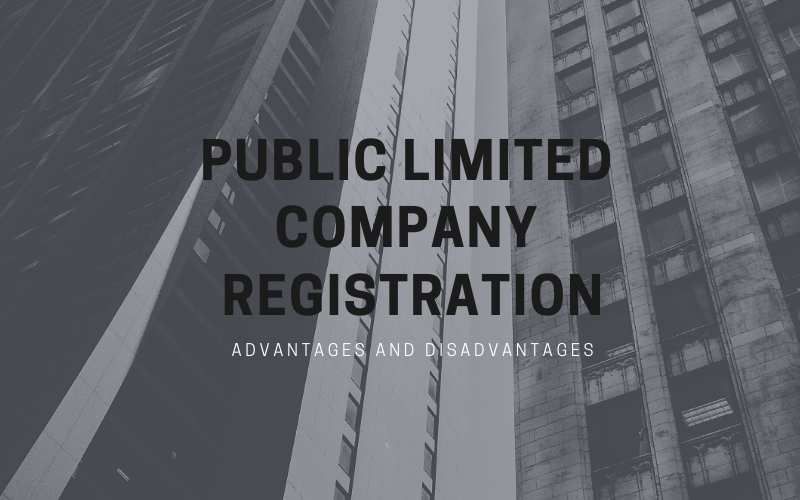Advantages and Disadvantages of Public Limited Company Registration
-
A Public Limited Company is a type of business entity which offers limited liability to its owners. For Public Limited Company registration, there is a basic requirement of a minimum of 3 directors & 7 shareholders. In comparison to a private limited company, it has more stringent regulatory requirements.
Public Limited Company Registration Requirements
There are a few criteria required to register the company as the public limited company. Those are as follows:
- The applicant company must have a minimum of 3 directors;
- There must be at least 7 shareholders;
- There can be a maximum of 50 directors; and

Advantages of Public Limited Company Registration
As obvious, being a limited company, a Public Limited Company shares the benefit of a limited company with its private counterpart. Apart from this, there are several other features of a PLC, many of which fortify one another and give it some unique advantages:
- Separate Legal Entity
A public limited company is a separate legal entity, which can hold property on its own name and incur liabilities. No member can claim upon the property and for such liability, members & directors shall not be responsible.
- Continuous Existence
A company has a perpetual succession until the dissolution of the company. It will be unaffected by the change in membership.
- Growth and expansion
Undoubtedly, a PLC is capable of raising finance, and that's how it can serve the business. With more finance readily available, the public limited company can in a favorable position to:
- Follow new projects, products or markets;
- Create capital expenditure to support and boost the business;
- Fund research and development;
- Pay off existing debt (or replace it with new one better terms); and
- Grow organically.
- Easy Transferability of Shares
In a public limited company, shares can be easily transferred by a shareholder to any other person. Now for public companies, it is mandatory to hold shares in a demat form.
Disadvantages of Public Limited Company
Every coin has two sides, and a PLC is no exception. It too has some disadvantages that are as follows:
- Increased regulatory requirements
As compared to a private limited company, a public limited company has more onerous legal and regulatory requirements to help protect the shareholders.
- A higher level of transparency needed
Limited companies have more of their details in the public domain, available via Companies House than other business types. The required level of transparency is much higher for public limited companies.
- Issues regarding control and ownership
In a public limited company, there's a possibility that the original owners or directors of the company can lose control of the direction, face disputes or spend more time managing shareholder expectations.
If you’re having any difficulty regarding the public limited company and its registration, then contact the team of Enterslice, one of the leading consultants and legal service providers in the market.






/image%2F2835562%2F20190625%2Fob_276555_food-processing.jpg)
/image%2F2835562%2F20190412%2Fob_dc6570_css.png)
/image%2F2835562%2F20190411%2Fob_210d3d_96f623e91d63bf19501c6f6309872bd916938.png)
/image%2F2835562%2F20190330%2Fob_44cd43_online-trademark-registration.jpg)